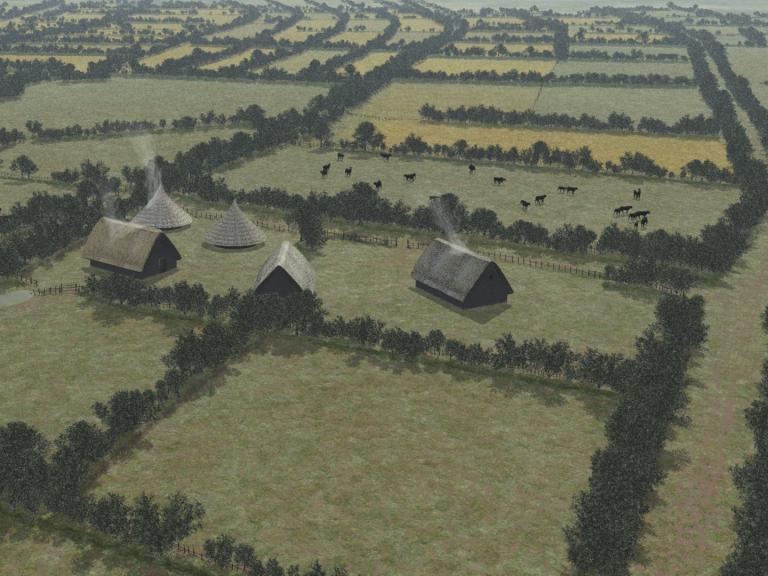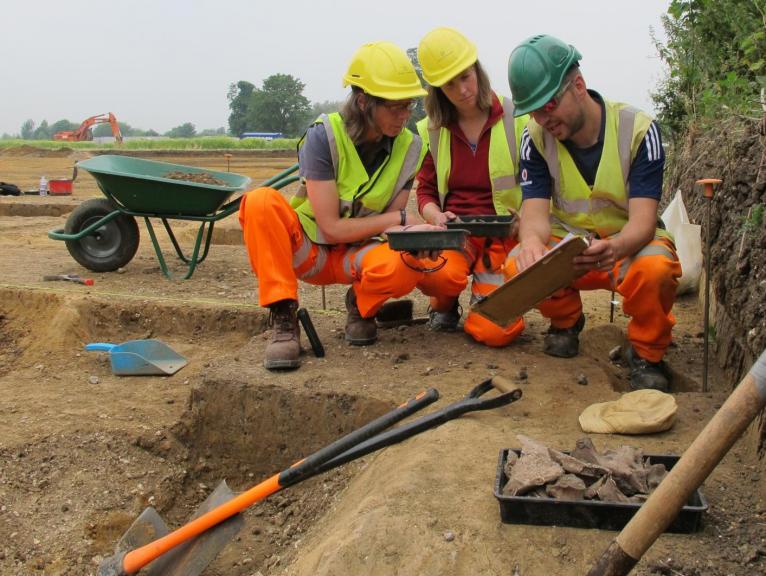51.385362306241, -2.8213724426971
Wessex Archaeology was commissioned by Willmott Dixon and Bloor Homes to undertake archaeological excavations at Yatton, ahead of construction work for a Primary School and housing development. Due to the archaeologically sensitive nature of the area, the work was a requirement of planning permission granted by North Somerset Council.
Excavations were carried out at North End in 2017 and 2018, with the aim of investigating the sequence of past human activity on this historic site.


Our results
We are currently completing the assessment of the site, analysis will follow so the results here are mostly preliminary.
The main feature of the site was a trackway, which was in use during the Iron Age and Romano-British periods, with settlement enclosures lining the route.
The earliest evidence of human activity was provided by beaker pottery. Moulds used for the manufacturing of swords are presumed to be Late Bronze Age date.
From the Iron Age phase of occupation an intriguing pit was excavated which contained ‘placed deposits’ which included a whole piglet, a rose quartz crystal and the foot of a white-tailed eagle!
Abundant remains from plant processing activities were retrieved, including rich deposits of charred spelt wheat, barley, and other exploited resources.
The actual settlement in Yatton had moved away from the area by the end of the Roman period when the site began to be used as a cemetery, from which around 550 graves were excavated. C14 analysis has been used to date the burials which were interred with the dates revealing that individuals died between 420 and 630 AD.


Community engagement
A Heritage Open Day was held on Friday 20th September 2019 at Yatton Rugby Club, where local councillors and members of local history societies were invited to put questions to an expert panel which included members of Wessex Archaeology’s digging team, alongside burial, finds and environmental specialists.
As part of the open day there was also a family friendly drop-in session with displays and hands-on activities relating to the archaeology of the village, including:
- Handling artefacts from the excavation itself
- A Virtual Reality experience of a reconstructed Roman villa
- Specialists to answer questions
- 3D reconstruction of a Ewert Park style sword
- 3D reconstructions of pottery, based on sherds recovered from the excavation
The exhibition put on display for a further month in the Yatton Library and Children’s Centre.






